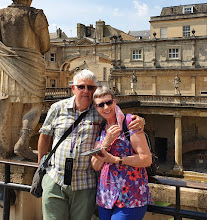Giving his second interview in a month, Pope Francis has this morning said the Holy See was often too “Vatican-centred”, adding that he promised to “do my best” to change the Catholic Church.
In
an interview with Italian daily “La Repubblica”, the pope conceded that
in the past popes had been “narcissistic” as well as “flattered, and
badly egged on by their courtiers”, adding: “The court is the leprosy in
the Vatican. ”
Asked whether by the term “court”, he was referring to the Roman Curia,
Francis replied: “No, in the Curia we sometimes have courtiers, but
overall the Curia is a different thing… However, it does have a serious
defect, in that it is very Vatican-centred. It sees and looks after the
interests of the Vatican, which are still, in great part, temporal
matters…
“This Vatican-centred vision tends to ignore
the world all around us. I don’t agree with this vision and I will do
my best to change it. The church is, or it has to once again become, a
community for the people of God - and the priests, the bishops in caring
for souls, are at the service of the people of God…”
Asked
what he sees as the most urgent priorities facing the church, Francis
replies: “The most serious problems afflicting the world at the moment
are the unemployment of youth and the loneliness of the old. The elderly
need care and company; the young need work and hope but they don’t have
either, and what is worse, they don’t even look for them any more. They
have been overwhelmed by the present…”
Pope
Francis has made no secret of his desire to create “a church of the poor
and for the poor”. In that context, he describes his early encounter at
school in Argentina
with a female teacher who was a fervent communist, subsequently
arrested, tortured and executed under the Argentine military junta in
the 1980s.
Even if never attracted by communism,
he says that to have come across it via an “honest and courageous”
person was “useful”, helping him when it came to understanding the
Catholic Church’s teachings on social justice.
Asked whether it had been right that Popes John Paul II and Benedict had repressed Marxist-influenced, liberation theology in Latin America,
Francis gives an equivocal answer: “Certainly they [liberation
theologians] followed up their theology with political activism but many
of them were believers with an impressive concept of humanity.”
Asked
about the responsibilities of the international political community,
Pope Francis first says that it is not the business of the church to
become involved in politics.
Later, he does
acknowledge, however, that politics has a major responsibility for
creating a world in which “egoism” has grown much more than “love of
others”, adding: “Personally, I think that the so-called globalisation
has managed only to make the strong stronger, the weak weaker and those
excluded, even more excluded.”
As for his reform
plans within the church, he points to his eight-man Council of Cardinals
meeting with him this week in the Vatican, describing them as “wise men
motivated by the same sentiments as me”, adding: “This is the beginning
of a church which has not only a vertical organisation but also a
horizontal one.”
Speaking of how he himself lives
his faith, Pope Francis says that he has no “vocation as a mystic” but
does reveal that on the day last March when he was elected pope, he
experienced a mystical moment. After having won the conclave vote, he
asked his fellow cardinals if he might withdraw for a moment of
solitude.
He was filled with a great anxiety,
even with the idea that he might refuse to accept the papacy. In order
to rid himself of this, he sat down and shut his eyes: “At a certain
point, I was struck by a great light. It didn’t last long, but to me it
seemed very long. Then the light faded and I jumped up and went back to
the room where the cardinals were waiting for me…and signed the act of
acceptance”, he adds.










No comments:
Post a Comment